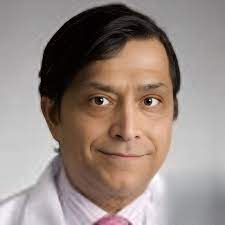In the ever-evolving field of medicine, the role of educators is pivotal in shaping the next generation of healthcare professionals. Dr Arun Arora Flushing NY, recognized as an educator extraordinaire, stands as a guiding force in medical training, leaving an indelible mark on the educational landscape by imparting not only knowledge but also a profound understanding of the human aspect of healthcare.
At the heart of Dr Arun Arora influence in medical training is a holistic approach that extends beyond traditional curricular boundaries. He envisions medical education as a transformative journey that goes beyond the acquisition of facts and figures, emphasizing the development of essential skills such as empathy, communication, and cultural competence. His philosophy recognizes that medical professionals must not only be knowledgeable but also possess the interpersonal skills necessary to forge meaningful connections with patients.
One of the key pillars of Dr. Arora’s influence is his commitment to fostering a culture of continuous learning. Recognizing the rapid pace of advancements in medicine, he advocates for educational programs that prioritize adaptability and a lifelong commitment to learning. Under his guidance, medical training becomes a dynamic process that equips future healthcare professionals with the skills to navigate the complexities of an ever-evolving field.
Dr. Arora’s influence extends to the integration of technology in medical training. Embracing the transformative potential of digital tools, he ensures that medical education keeps pace with technological advancements. From virtual simulations for practical training to incorporating telemedicine concepts into the curriculum, Dr Arun Arora influence ensures that future healthcare professionals are well-versed in the use of technology for improved patient care.
Beyond the classroom, Dr. Arora’s impact on medical training is evident in his emphasis on practical experiences. He recognizes the value of hands-on learning in developing clinical skills and critical thinking. Through mentorship programs, clinical rotations, and real-world exposure, he ensures that medical students are not only academically prepared but also clinically competent and ready to face the challenges of patient care.
Cultural competence and diversity are central themes in Dr. Arora’s educational influence. He understands that a diverse and culturally aware healthcare workforce is essential for providing equitable and patient-centered care. By incorporating cultural competency training into the curriculum and promoting diversity in educational settings, he ensures that medical students graduate with a comprehensive understanding of the varied needs and backgrounds of the patient population.
Dr. Arora’s influence is not confined to the academic sphere; it extends to the development of future leaders in healthcare. By instilling a sense of responsibility, ethics, and leadership qualities in his students, he contributes to a legacy of healthcare professionals who not only excel in their clinical roles but also actively contribute to the improvement of healthcare systems and policies.
In conclusion, Dr. Arun Arora’s influence in medical training transcends conventional boundaries, embodying an educator extraordinaire whose impact goes beyond the transfer of knowledge. His holistic approach, commitment to continuous learning, integration of technology, emphasis on practical experiences, cultural competence advocacy, and focus on leadership development collectively shape the future of healthcare professionals. Dr. Arora’s influence serves as an inspiration for educators and students alike, illustrating the transformative power of a comprehensive and patient-centered approach to medical training.



